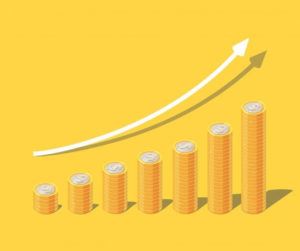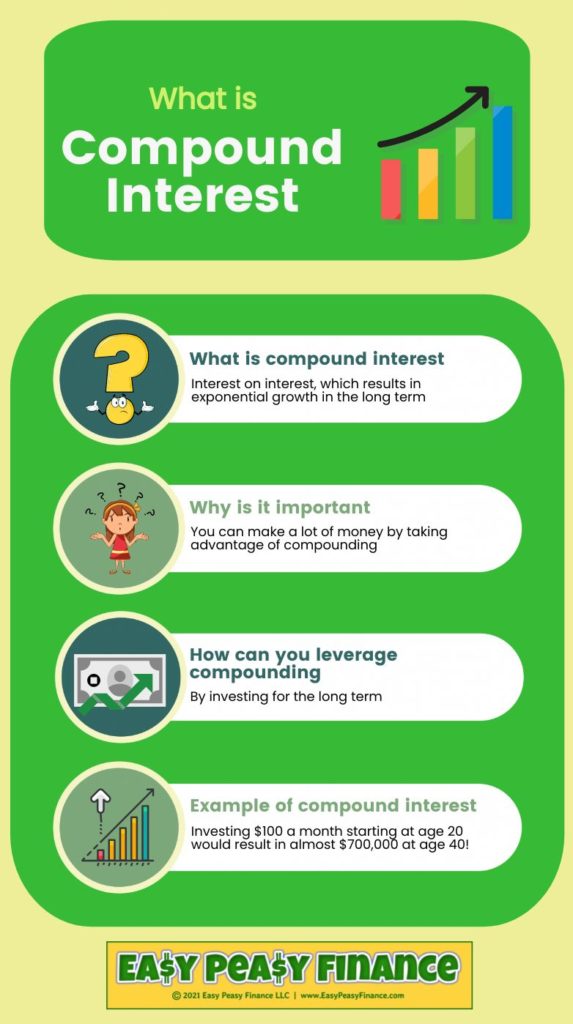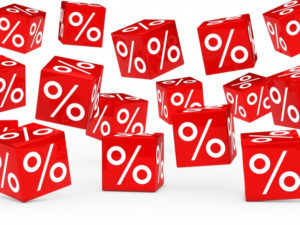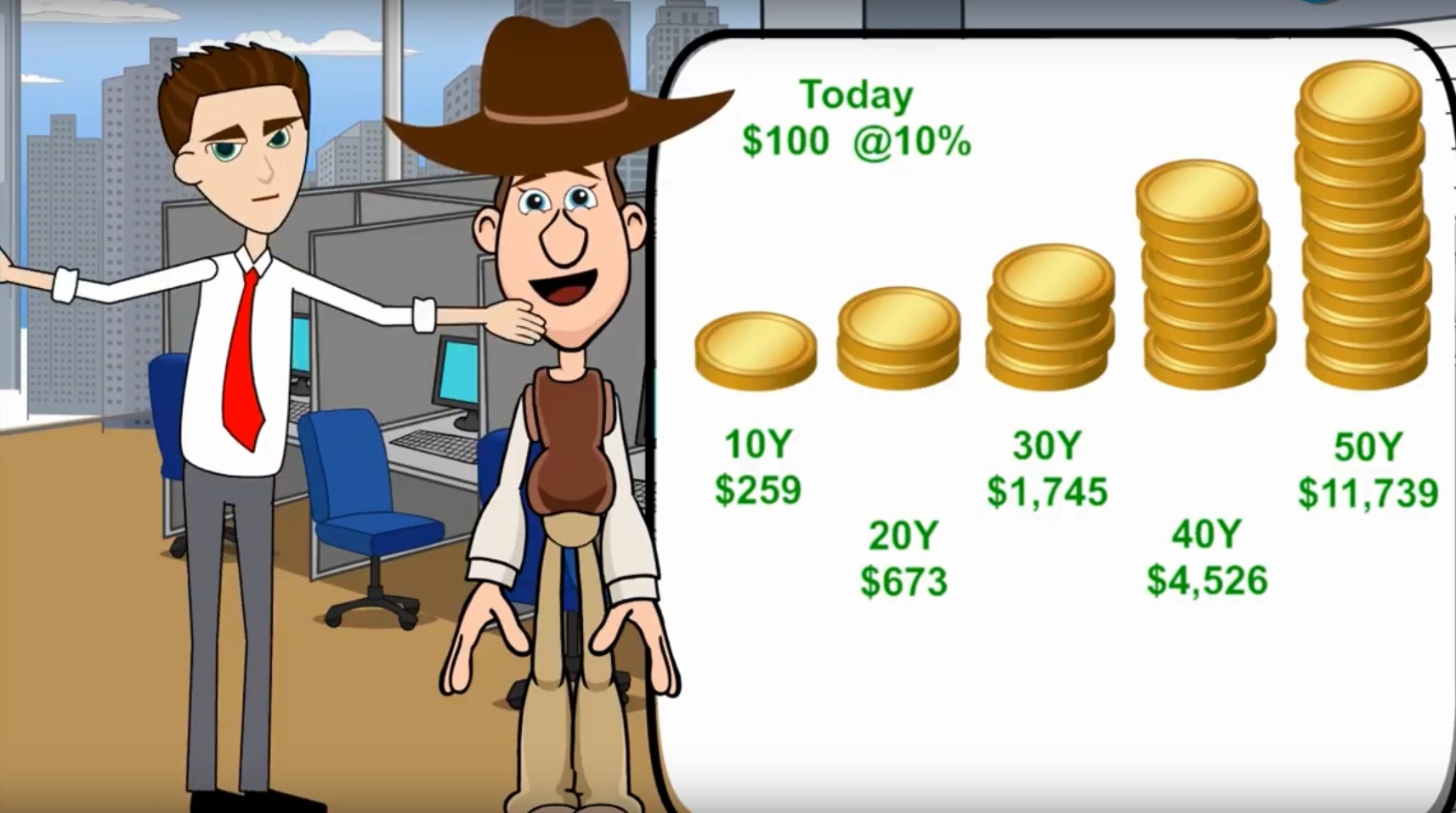Introduction to Compound Interest for Kids and Teens
This video explains the concept of compound interest in a simple, concise way for kids and beginners. It could be used by kids & teens to learn about compounding, or used as a money & personal finance resource by parents and teachers as part of a Financial Literacy course or K-12 curriculum.

Suitable for students from grade levels:
- Kindergarten
- Elementary School
- Middle School
- High School
The topics covered are:
- What is Compound Interest
- An Example of the Power of Compounding
- Does a bank account give compound interest

Infographic: Click Here to Download
Howdy Wall Street Willy. I have a really big question for you.
What is compound interest?
Compound interest is interest on interest.
What do you mean by interest on interest?

If you have $100 in the bank and has 10% rate of interest, on the first year, it’ll be $10 in interest because 10% of $100 is $10. But in the second year, the interest will be $11 because the interest for a $100 is $10, and for the extra $10 is another $1. So the total is $11 for the second year, but only $10 for the first year.
Well, but why is that even important? It’s just interest on interest on interest. Who cares?
Well, it shows that the longer you invest your money for, the quicker your money grows and its growth gets accelerated. And you can make a lot of money with compound interest.
Click to Tweet
An Example of the Power of Compounding
Well then, I really like compound interest. But could you give me a long term example?
Okay. If there’s $100 at a 10% rate of interest, in 10 years it’ll turn into $259. In 20 years, I’ll turn into $673. In 30 years, it’ll turn into $1,745. In 40 years, it’ll turn into $4,526. And in 50 years, it’ll turn into $11,739!!

$100 at a 10% rate of interest
- 10 years: $259
- 20 years: $673
- 30 years: $1,745
- 40 years: $4,526
- 50 years: $11,739
Whoa! That’s so awesome! A $100 at a 10% rate of interest can turn into $11,739. That’s so awesome!!
Yes, it is very awesome. That is why compound interest is very important.
Does my bank account give compound interest?
If you leave the interest that you got in your bank account, then yes, you would receive compound interest.

That’s great! But does my piggy bank give compound interest?
No, it does not even give interest – unless your parents secretly sneak money into it!
Thank you very much for teaching me about compound interest, Wall Street Willy.
You’re welcome. Remember, finance is your friend!
Video Featured in the Below Financial Literacy Course for Kids & Teens
Download Transcript: Ideal for Use by Teachers in their Lesson Plan to Teach Kids & Teens
Podcast: What is Compound Interest?
Fun, informative and concise episodes by a 10-year old, breaking down complex financial concepts in a way that kids and beginners can understand. Episodes cover personal finance topics like saving, investing, banking, credit cards, insurance, real estate, mortgage, retirement planning, 401k, stocks, bonds, income tax, and more, and are in the form of a conversation between a cowboy (a finance novice) and his friend, a stock broker. Making finance your friend, only at Easy Peasy Finance.
A little bit about me: I have been fascinated with the world of personal finance since I was 6! I love to read personal finance books, and keep myself updated on the latest by reading various personal finance magazines. My friends often ask me questions about finance because they find it complex and intimidating. That’s what inspired me to start my YouTube channel called Easy Peasy Finance when I was 8, and this podcast 2 years later.
Everything you need to know about compound interest: What is compound interest, how does it work, why compound interest is so important (the power of compounding), a long term example of compound interest, and more. Show notes and transcript at: https://easypeasyfinance.com/what-is-compound-interest/


